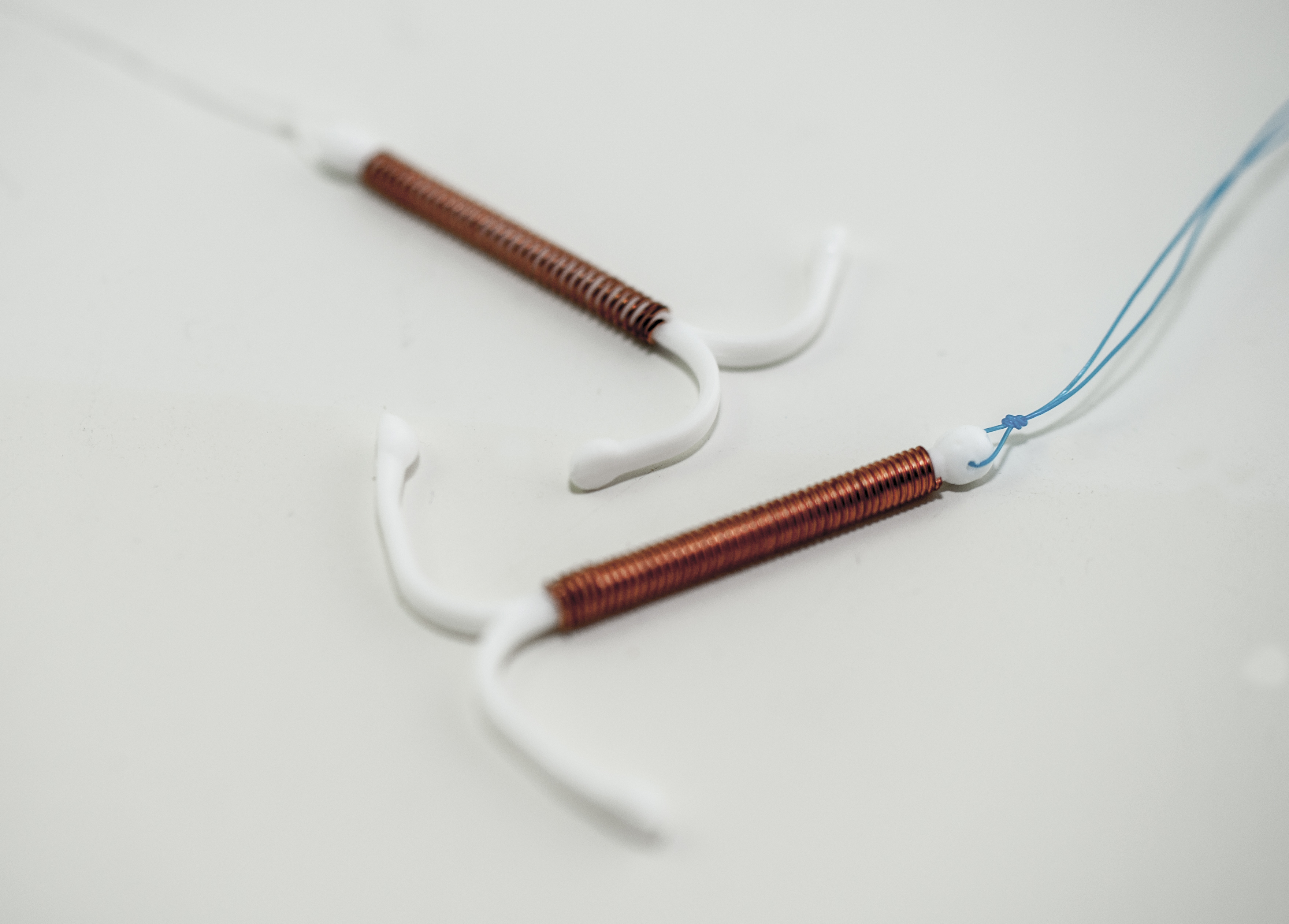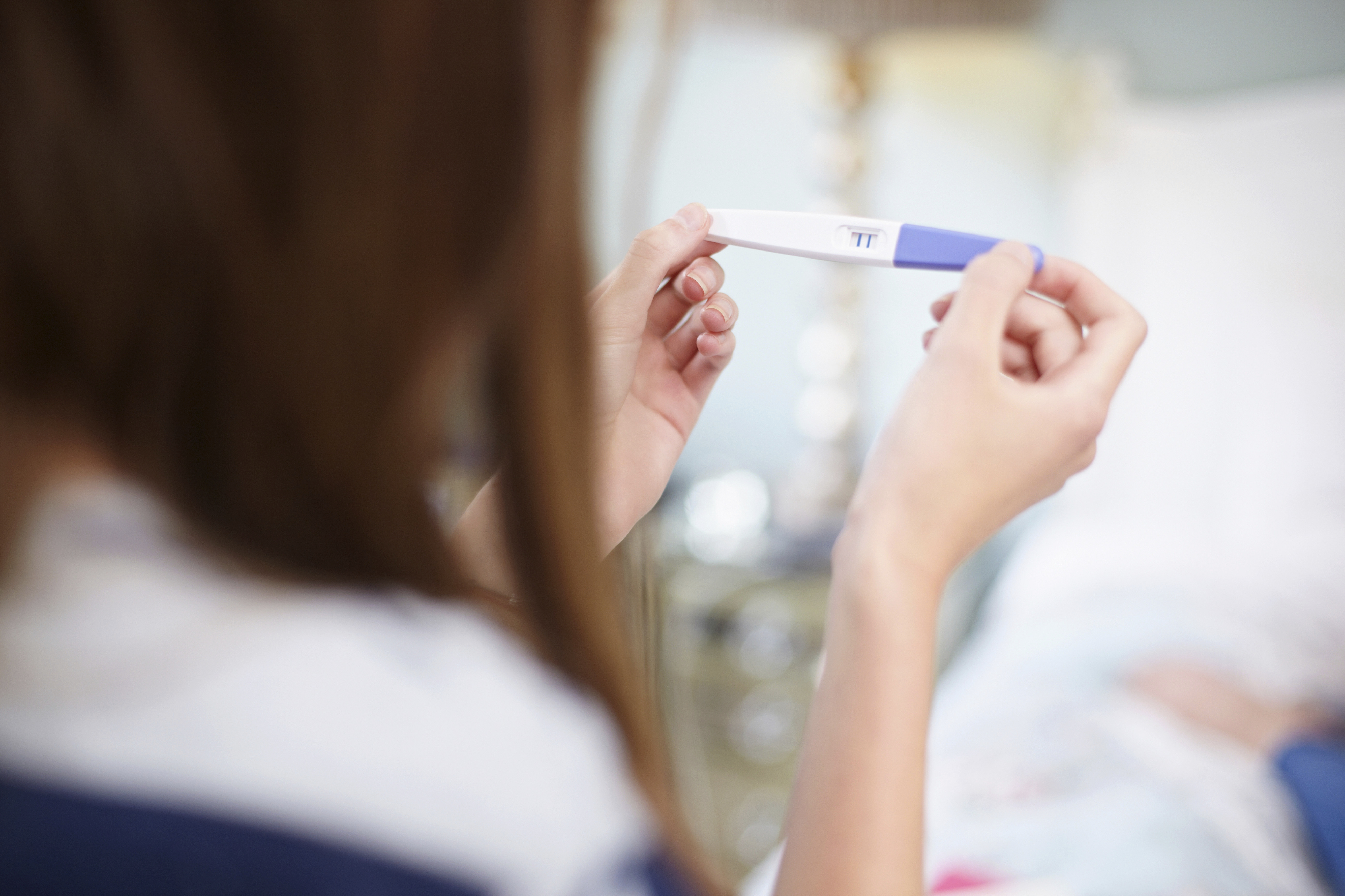Can you get pregnant on the coil? The truth about falling pregnant with an IUD
Can you get pregnant on the coil? It's a worry that many people with an IUD have, so we've got the experts to tell us all about it.


Parenting advice, hot topics, best buys and family finance tips delivered straight to your inbox.
You are now subscribed
Your newsletter sign-up was successful
Can you get pregnant on the coil? Using an IUD (commonly referred to as “the coil”) is one of the most effective ways to prevent pregnancy. However, with fewer than 20 per cent of women in the UK using the method, it’s no surprise that it remains elusive to some.
The coil has an effectiveness rate of more than 99%, making it one of the most reliable forms of contraception out there - so why are so many people concerned about getting pregnant with an IUD?
Some researchers put it down to marketing and suggest that other forms of contraception, such as the pill and condoms, have historically been pushed since they’re more profitable as short term methods. Meanwhile the coil lasts for three years as standard - and up to 12 years in some cases. It’s another reason for reluctance perhaps, as not many people are willing to commit to a semi-permanent change in their body for so long.
Others argue that the coil has a bad reputation for being painful, causing negative side effects and even, essentially, just not doing its job.
So can you get pregnant on the coil? This is what the experts have to say…
Can you get pregnant on the coil?
The simple answer is yes - but it's very rare. Fewer than 1 in 100 IUD users will fall pregnant if using the coil for a year.
As a method of contraception that’s proven to be more than 99% effective, a standard pregnancy on the coil is not very common - and that’s with both types.
Parenting advice, hot topics, best buys and family finance tips delivered straight to your inbox.
“The IUS (intrauterine system) is similar to the IUD (intrauterine device), but instead of releasing copper like the IUD, it releases the hormone progesterone into the womb.” Dr Roisin McHugh, dedicated GP for Oxford Online Pharmacy, says.
“The Mirena coil (IUS) for example is over 99% effective once fitted. Fewer than 1 in 100 IUS users will get pregnant in a year. The copper coil (IUD) is over 99% effective once fitted. Fewer than 1 in 100 IUD users will get pregnant in a year.”
Dr McHugh adds that one is slightly more effective than the other, however. “According to the Centers for Disease Control and Prevention (CDC), copper IUDs have a failure rate of 0.8% while the levonorgestrel intrauterine system (IUS) has a failure rate of 0.1 to 0.4%.”
But as effective as it might be, getting pregnant on the coil is possible especially if it's not fitted properly or is moved from its proper position. As Consultant Gynaecologist Mr Raef Faris at the Lister Fertility Clinic says, “While on the coil it’s unlikely to achieve a pregnancy as it is quite an effective contraception, however, if the coil is displaced then there is a risk of getting pregnant.”
Can you get pregnant with an expired IUD?

“It’s not advisable to leave the coil beyond expiry date as this could decrease its efficiency as a contraceptive, especially if it is a hormone releasing coil.” Mr Raef Faris says.
This was unfortunately the situation that many people found themselves in earlier in the year with contraception shortages and then again during the first coronavirus lockdown, as coil and implant replacement was widely affected when the NHS closed their doors to non-essential appointments.
Luckily though, as The Faculty of Sexual and Reproductive Healthcare says, “Some forms of long-acting reversible contraception are very likely to be effective for contraception for a year or more longer than is usually recommended.”
They do add that the studies suggesting this are confirmed and a IUD that’s due for removal could still be “extremely effective”, but the faculty have admitted that they need bigger studies to be sure that it’s equally effective during this period as during the licensed time. In all cases, IUD and IUS coils don’t cause health problems if they remain inside your system until after the expiry date and as suggested, might even continue to offer some form of contraception.
As with all medical issues, if you have any concerns about an IUD or IUS then it’s best to contact a GP or local health practitioner who will be able to advise on specific cases.
What happens if you get pregnant with an IUD?

As noted, it is incredibly unlikely to get pregnant with an IUD but there are studies and stories of it happening to the less than one in ten people. According to Dr Roisin McHugh, this is often the result of “expulsion” and it's essentially when the IUD falls out of uterus either partially or totally.
“2-4 % of IUD expulsion occurs in the first year after fitting. Usually the woman will notice this, she will either feel it, her bleeding pattern will change or she will no longer be able to feel the strings. If she is not aware of the IUD/IUS expulsion then there is a risk of pregnancy.”
If pregnancy does occur, all the options normally available remain and the pregnancy can also continue to full term, Dr McHugh says but she warns, “Women who get pregnant with the IUD in place have a slightly increased risk of ectopic pregnancy. This is when the pregnancy develops outside the uterus cavity (e.g. in the Fallopian tubes).”
Symptoms of an ectopic pregnancy include...
- Lower back pain
- Pelvic pain or cramping
- Abnormal vaginal bleeding
- Fainting
If this is a possibility then it’s important to consult a GP straight away, to arrange an ultrasound scan and to confirm the location and how many weeks pregnant you are, obstetrician and gynaecologist Dr Ellie Rayner says.
“If you are found to have an intrauterine pregnancy, then you are likely to be advised to have [the IUD] removed before 12 weeks gestation.” She explains, “This will help reduce the risk of complications during the pregnancy, such as miscarriage, premature birth or intrauterine infection. Although it doesn’t reduce the risk completely, these complications are uncommon.”
How do you know if you are pregnant with an IUD?

“The symptoms of pregnancy would be the same, with or without the presence of an IUD,” Dr Roisin McHugh tells GoodtoKnow, “These include a missed period, fatigue, breast tenderness, cravings, mood change and nausea.”
This means that if you’ve just come off the coil and are looking to get pregnant, then it could happen fairly quickly. “If you are using the IUD or IUS for contraception and would like to get pregnant,” Dr Ellie Rayner explains, “You can have it removed at any time by a trained healthcare professional.”
“Your fertility returns back to normal after removal of an IUS or IUD in a similar time frame after stopping any other form of contraception so you can start trying straight away if you would like.”
As well as being an obstetrician and gynaecologist, Dr Ellie Rayner is an antenatal teacher and founder of The Maternity Collective. She offers lots of free pregnancy and gynaecology advice on her Instagram page.
So while the beginning of a pregnancy with an IUD might be a little more complex than hoped, there’s plenty of help out there both from GPs and external sources.
It’s also easy to tell if you’re pregnant or not while on the coil as most people know, the best way to determine whether it’s an early pregnancy is to take a pregnancy test, many of which are at least 60% accurate six days before your next predicted period.
Advice from the experts on pregnancy and the coil
If you’re trying to conceive, then our experts have some other advice…
“Like other hormonal contraception, an IUD containing hormones can affect each woman differently, for some women it can take a few months for her cycle to return to normal due to the hormonal effects, so you may want to take this into account when thinking about timescales.” Kate Pleace, fertility nurse at Dr Fertility, suggests. “However, the good news is that this is usually only for a short period of time.
“If you suspect that you may already have an underlying fertility problem prior to insertion of the IUD, such as an irregular cycle or other known fertility conditions such as PCOS, you may need to seek specialist advice after the IUD is removed.”
She adds that as well as having the IUD removed and consulting a doctor, “If you are trying to conceive it is also important to ensure your body is ready for a pregnancy and you consider other factors that can affect fertility such as diet and lifestyle and ensure you also begin taking a prenatal supplement.”
For most people who use the coil, however, not getting pregnant is the main goal. This is why many people are often pleased to hear that the IUD can be used as a post-coital contraceptive, as well as a preventative measure.
“An IUD, or advice on how to obtain one, should be offered to all women attending for emergency contraception, even if presenting within 72 hours of unprotected sexual intercourse (UPSI).” Dr Roisin McHugh advises. “A copper IUD can be inserted up to 5 days after the first episode of UPSI. If the timing of ovulation can be estimated, insertion can be beyond 5 days of UPSI, as long as it does not occur beyond 5 days after ovulation.”

Grace Walsh is a health and wellbeing writer, working across the subjects of family, relationships, and LGBT topics, as well as sleep and mental health. A digital journalist with over six years experience as a writer and editor for UK publications, Grace is currently Health Editor for womanandhome.com and has also worked with Cosmopolitan, Red, The i Paper, GoodtoKnow, and more. After graduating from the University of Warwick, she started her career writing about the complexities of sex and relationships, before combining personal hobbies with professional and writing about fitness.